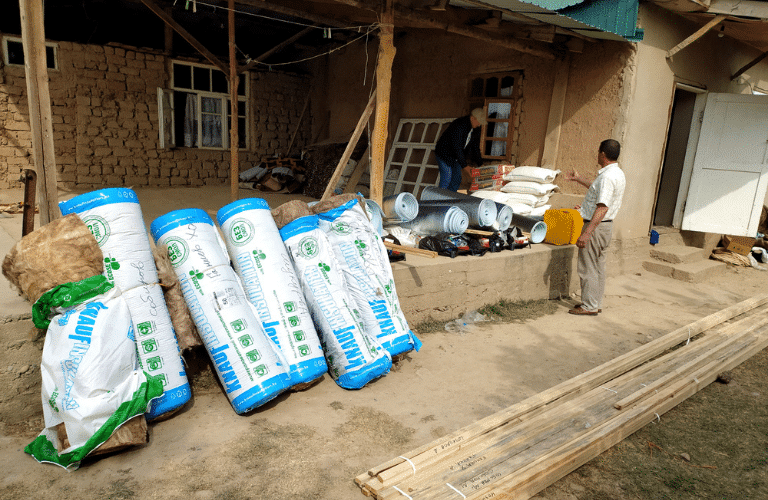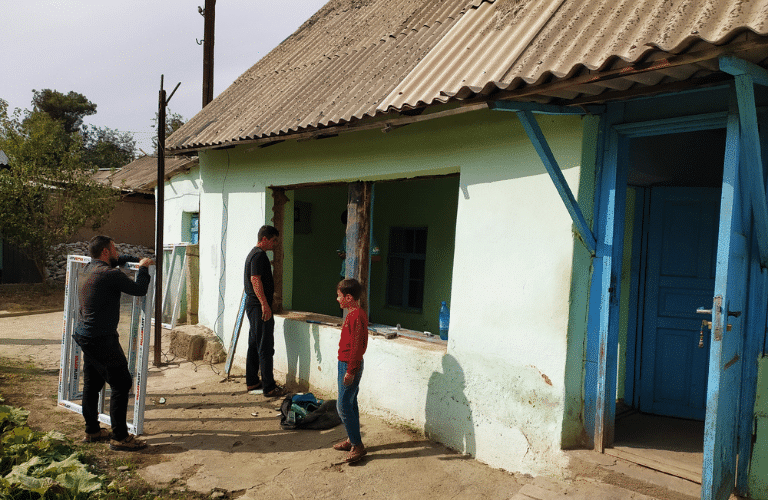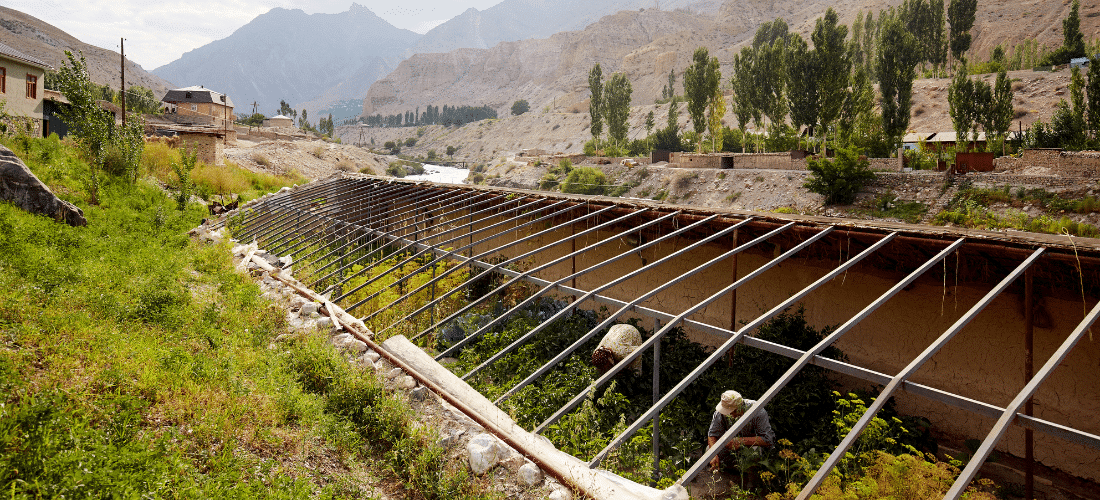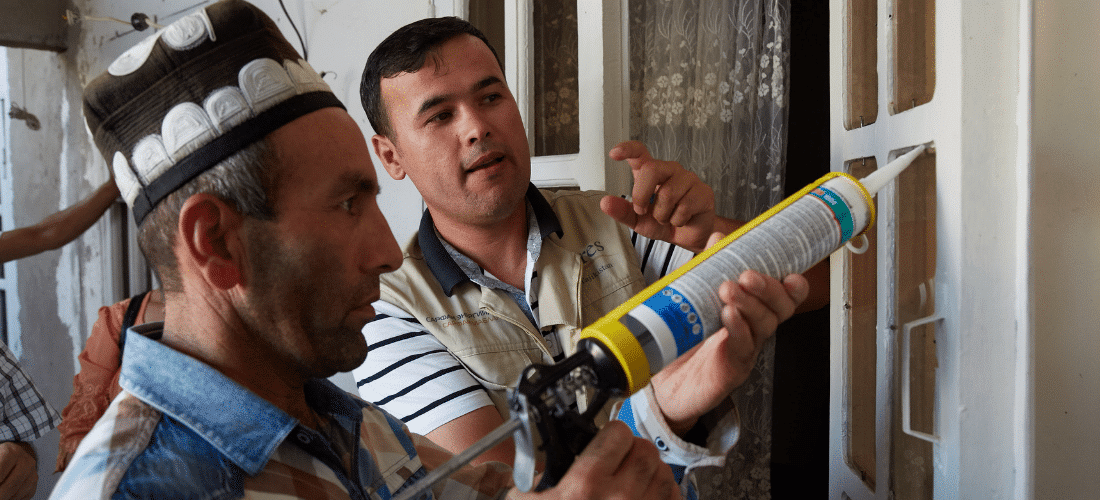With the support of the Abbé Pierre Foundation, Geres has been able to help 94 Tajik households out of energy poverty
Towards the end of 2020, Geres undertook renovation and insulation work in Tajikistan. The aim: improving the thermal comfort of vulnerable households whose poverty has been exacerbated by the pandemic. The operation can now be counted as a success, thanks to the exceptional funding granted by the Abbé Pierre Foundation.
Overview and impacts of the operation
Carried out from September to December 2020, the project to reduce the energy poverty of vulnerable households impacted by the COVID19 crisis in Tajikistan was initially set up on the basis of work already done by Geres in Tajikistan. So the teams were in a position to get help quickly to the households.
In advance of the renovations, 11 training courses on thermal renovation were organized according to the site-school model and attended by 107 people, including 13 artisans. Apart from active awareness-raising, Geres hopes that the techniques learned during training will enable participants to earn additional income in future.
Although it is still hard to measure the health impacts of the COVID19 crisis in Tajikistan, the project has nevertheless helped to improve local awareness of the disease and the need for preventative measures and other action to reduce the spread of the epidemic.
To learn more about the project’s history, see also: Geres and the Abbé Pierre Foundation step up to help 100 families affected by the crisis in Tajikistan
More widely, this operation served to improve the winter comfort of 94 extremely vulnerable households in two rural districts, while enhancing their income by reducing fuel expenditure. The evaluation study conducted by Geres showed that the average annual saving on heating was 570 Tajikistani Somoni (€41), i.e. just over one month’s income!

When questioned, 33% of the Tajik residents reported feeling more warmth and greater comfort in their homes. And 67% replied that they were “a lot warmer”.
With a 10-year guarantee on double-glazed windows and 20 years on insulation, the lifetime of the renovations is expected to be a minimum of 10 years, providing long-term benefits for the households.
Positive impacts on the health of women and children
Overall, 96% of the households say they have also noticed an improvement in indoor air quality and associate this benefit with a reduction in health problems (chills, flu, coughs especially in children, joint pains, etc.).
It should not be forgotten that, in Tajikistan, women unfortunately still bear the main burden of supplying and maintaining heating.
Amongst those surveyed, 40% agreed that the operation specifically benefits women and children, because they are responsible for the household and/or stay in their houses for comparatively longer periods.
A drastic reduction in energy consumption
Thanks to the renovation and thermal insulation work, household fuel consumption has fallen by an average of 43% for charcoal, 38% for wood and 35% for dung (the energy mix traditionally used in the project areas). Great news!
Find out more about Geres activities in Tajikistan
With regard to the use of wood, the decrease has also led to a genuine reduction in uncontrolled fuelwood collection with a consequently positive effect on deforestation in Tajikistan.
The same goes for carbon dioxide emissions. As a result of the reduction in beneficiary households’ energy consumption, we anticipate a fall in CO2 emissions to 2.3 t/year per household, which amounts to 2000 tonnes over a lifetime.

Satisfactory results encouraging Geres to widen the scope of its work in Tajikistan
Presently, given the impact seen and its relevance beyond the context of a health emergency, Geres is hoping to scale up its work on renovation of existing buildings.
In addition to replicating this kind of operation in a larger geographical area, our teams are also planning to diversify, introducing other housing improvement solutions as well as thermal insulation. The idea being to include passive solar solutions this time.
Geres news in Tajikistan

New opportunities for unemployed youth in Tajikistan
In october 2021, Geres in collaboration with local NGO’s, launched a series of action to help tackle tajik youth unemployment. Part of ...

In Tajikistan, Geres is working to ensure greater resilience and better living conditions for rural communities
In the Rasht valley, poverty and climate warming are impacting food production and daily life. Launched in April 2022 and spanning ...

Innovative solutions warm houses up and trigger initiatives in Tajikistan
Testimonials. In 2021, Geres is launching a new project on sustainable energy solutions for Tajik housing. Munisa and her father, ...
WOULD YOU LIKE TO TAKE ACTION
AND SUPPORT WHAT WE DO?
Tell us who you are and find your means of action.
